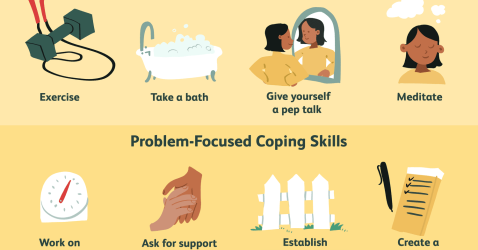Feng Shui: Harmonizing Your Space For Mental Well-being
Are you looking to create a space that promotes mental well-being? Look no further than the ancient practice of Feng Shui. Originating in China over 3,000 years ago, Feng Shui is all about optimizing the flow of energy, or chi, in your environment. By arranging your space in a way that promotes balance and harmony, you can create a nurturing atmosphere that supports your mental and emotional well-being. In this article, we will explore the key principles of Feng Shui and how you can apply them to create a peaceful and rejuvenating space for yourself. So, get ready to transform your surroundings and enhance your mental well-being through the power of Feng Shui.
Feng Shui Basics
Understanding Feng Shui
Feng Shui is an ancient Chinese art and science that focuses on harmonizing the energy in our living spaces to promote well-being and balance in our lives. The practice of Feng Shui is based on the belief that the arrangement and design of our physical environment can impact our health, happiness, and overall quality of life. By understanding the principles of Feng Shui and applying them to our homes and workplaces, we can create a more harmonious and conducive environment for optimal mental well-being.
The Principles of Feng Shui
The principles of Feng Shui are centered around the flow of energy, also known as “chi,” in our living spaces. According to Feng Shui, chi should flow freely and smoothly throughout our environment to create a positive and balanced energy. Some key principles include:
-
Clearing Clutter: Clutter can disrupt the flow of energy and create stagnant energy in our spaces. By decluttering and organizing our surroundings, we can create a more harmonious and uplifting atmosphere.
-
The Power of Colors: Colors have the ability to evoke specific emotions and energies. In Feng Shui, each color is associated with different elements and energies. By using appropriate colors in our spaces, we can enhance the desired energy and mood.
-
The Role of Natural Light: Natural light is a vital element in Feng Shui. It not only brightens up our spaces but also brings in positive energy. Maximizing natural light through windows, skylights, and mirrors can help create a more vibrant and uplifting environment.
The Bagua Map
The Bagua Map is a fundamental tool used in Feng Shui to analyze and map the energy in our living spaces. It is an octagonal grid that represents different areas of our lives, such as wealth, relationships, career, and health. By aligning the Bagua Map with the floor plan of our homes or offices, we can identify areas that may need attention or enhancement to promote positive energy flow and mental well-being.
Creating a Balanced Environment
Clearing Clutter
One of the key principles of Feng Shui is to clear clutter from our living spaces. Clutter not only creates a visual distraction but also disrupts the flow of energy. Start by decluttering one area at a time, such as your desk, closet, or living room. Get rid of items that you no longer need or use, and organize the remaining items in a neat and tidy manner. A clutter-free environment will promote a sense of calm and clarity, allowing for better mental well-being.
The Power of Colors
Colors have a profound impact on our emotions and energy levels. In Feng Shui, each color is associated with specific elements and energies. For example, warm colors like red, orange, and yellow are associated with the fire element, which represents passion and energy. Cool colors like blue and green are associated with the wood and water elements, representing growth, harmony, and tranquility. By incorporating the appropriate colors in your space through paint, furniture, and decor, you can create a balanced and uplifting environment for your mental well-being.
The Role of Natural Light
Natural light is a powerful source of positive energy. It not only brightens up our spaces but also has a positive impact on our mood and overall well-being. When arranging your furniture and layout, consider maximizing natural light by placing windows in areas where sunlight can enter freely. If you have limited natural light in certain areas, you can use mirrors to reflect and spread the light, creating a more vibrant and inviting space. Remember to keep curtains and blinds open during the day to allow natural light to fill your space.
Arranging Furniture and Layout
The Commanding Position
In Feng Shui, the commanding position refers to the placement of furniture in a way that provides a sense of security and control. The commanding position typically involves placing your bed, desk, and seating areas in a position where you have a clear view of the door and the room without being directly in line with it. This position allows you to feel empowered and aware of your surroundings, promoting a sense of stability and mental well-being.
Balancing Yin and Yang
Yin and Yang are complementary energies in Feng Shui. Yin represents qualities such as calmness, softness, and relaxation, while Yang represents qualities such as activity, brightness, and stimulation. To create a balanced environment, it is important to strike a harmonious balance between these two energies. Incorporate yin elements, such as comfortable seating, soft textures, and gentle lighting, for areas where you want to promote relaxation and tranquility. Incorporate yang elements, such as bright colors, natural light, and stimulating decor, for areas where you want to foster productivity and energy.
Bedroom Feng Shui
The bedroom is an essential space for our mental well-being as it is where we rest and recharge. When it comes to bedroom Feng Shui, consider the placement of your bed, which is the most important furniture piece in the room. Ideally, your bed should be placed in a commanding position, with a solid wall behind it for a sense of stability and support. Avoid placing your bed directly in line with the door, as this can cause restless sleep and a lack of privacy. Create a calm and serene ambiance by using soothing colors, soft bedding, and minimal electronics in your bedroom.
Enhancing Energy Flow
Using Mirrors and Reflections
Mirrors are powerful tools in Feng Shui as they can enhance the flow of energy and create a sense of spaciousness in your space. Placing a mirror opposite a window can reflect and multiply the natural light, making the room appear brighter and more vibrant. Mirrors can also be strategically placed to reflect positive views, such as nature or artwork, and redirect the energy flow in your space. However, be mindful of avoiding mirrors that reflect negative or cluttered areas, as this can amplify negative energy.
Plants and Natural Elements
Bringing nature into your space through plants and natural elements is a fundamental aspect of Feng Shui. Plants have the ability to purify the air, promote positive energy, and create a sense of harmony and connection with nature. Choose plants with rounded leaves and avoid plants with sharp or spiky leaves, as they can create a sense of tension. Incorporate natural elements, such as wood, stone, or water features, to enhance the flow of energy and create a more balanced and serene environment.
Water Features
Water is an essential element in Feng Shui as it represents wealth, abundance, and the flow of energy. Water features, such as fountains or aquariums, can be used to activate and enhance the energy in specific areas of your space. However, it is important to be mindful of the placement and maintenance of water features. Ensure that the water is clean and flowing smoothly, as stagnant or polluted water can have a negative impact on the energy in your space.
Harmonizing with Elements
Understanding the Five Elements
In Feng Shui, the five elements – wood, fire, earth, metal, and water – are fundamental to creating a balanced and harmonious environment. Each element is associated with specific colors, shapes, and qualities. Understanding the interactions and relationships between these elements can help you create a space that promotes mental well-being. For example, earth elements, such as ceramics or stones, can enhance stability and grounding, while metal elements, such as metallic decor, can promote clarity and precision.
Incorporating Earth Elements
Earth elements in your space can create a sense of stability and grounding. Incorporate earthy colors, such as browns and yellows, in your decor and furnishings. Use natural materials like ceramics, stones, or clay to bring the earth element into your space. Additionally, earthy scents, such as sandalwood or patchouli, can also create a calming and grounding atmosphere.
Working with Metal Elements
Metal elements in Feng Shui symbolize clarity, precision, and focus. Incorporate metallic decor, such as silver or gold accents, in your space to enhance mental sharpness and productivity. You can also use metal wind chimes or bells to activate and circulate positive energy. However, be mindful of not overusing metal elements, as an excessive amount can create an overly rigid or cold environment. Balance is key when working with metal elements.
Applying Feng Shui in Different Spaces
Feng Shui for the Office
Applying Feng Shui in your office space can promote focus, productivity, and overall well-being. Start by arranging your desk in the commanding position, facing the door if possible. Ensure that you have proper lighting and incorporate natural elements, such as plants or a small water fountain, to activate positive energy. Declutter your workspace regularly to maintain a clear and organized environment. Use colors and decor that resonate with your goals and intentions, whether it is creativity, success, or balance.
Feng Shui in the Kitchen
The kitchen is the heart of the home and plays a crucial role in our overall well-being. In Feng Shui, the kitchen represents nourishment and abundance. Keep your kitchen clean, decluttered, and well-organized to promote positive energy flow. Use colors that stimulate appetite and creativity, such as warm oranges or vibrant reds. Incorporate natural elements, such as wooden cutting boards or plants, to balance the fire element of the kitchen. Ensure that your stove is in good working condition and clean, as it signifies wealth and prosperity in Feng Shui.
Feng Shui for the Bedroom
The bedroom is a sanctuary for rest and relaxation, making it an important space for our mental well-being. Create a calm and peaceful ambiance by using soft and soothing colors, like pastels or neutrals. Remove electronic devices or keep them out of sight to minimize distractions and promote a more restful sleep. Keep your bedroom clutter-free and organize your belongings in a way that promotes a sense of serenity. Incorporate elements of the earth and water to create a balanced and nurturing atmosphere.
Attracting Positive Energy
Symbols and Crystals
In Feng Shui, symbols and crystals are believed to attract and amplify positive energy in our spaces. Symbols such as the laughing Buddha, lucky coins, or the dragon turtle are commonly used to attract good luck, wealth, and prosperity. Crystals, such as amethyst or clear quartz, are believed to have specific properties that can enhance the energy in your space. Place crystals strategically in areas that require specific energies, such as rose quartz in the bedroom for love and harmony, or citrine in the wealth area to attract abundance.
The Fu Dogs
Fu Dogs, also known as guardian lions or lion statues, are prominent symbols in Feng Shui. They are believed to protect and guard against negative energy and promote positive chi in your space. Placing Fu Dogs at the entrance of your home or office can create a sense of security and strength. Ensure that they are placed in pairs, with the male on the right and the female on the left, for optimal balance and energy flow.
The Lucky Bamboo
The Lucky Bamboo is a popular Feng Shui plant that is believed to bring good luck, prosperity, and positive energy. It is easy to care for and can thrive in various lighting conditions. Place the Lucky Bamboo in the wealth or abundance area of your space, such as the southeast corner of your home or office, to attract prosperity and good fortune. Ensure that the bamboo is healthy and well-maintained, as wilted or dying bamboo can have the opposite effect.
Creating a Peaceful Sleep Environment
Improve the Bed Placement
The placement of your bed plays a crucial role in creating a peaceful sleep environment. As mentioned earlier, the bed should be placed in the commanding position, with a solid wall behind it for support. Avoid placing your bed directly in line with the door, as this can create restlessness and a lack of privacy. Ensure that you have a clear view of the door while lying in bed, as this promotes a sense of safety and security. Consider the height and quality of your mattress and pillows to optimize your comfort and quality of sleep.
Choosing the Right Bed
When it comes to choosing a bed, it is important to consider both comfort and design. Opt for a mattress and bedding that provide optimal support and comfort for a restful sleep. Choose colors and textures that promote relaxation and calmness, such as soft neutrals or soothing pastels. Avoid excessive ornamentation or sharp edges on your bed frame, as this can create a sense of restlessness and unease. Balance is key when selecting a bed that promotes both physical and mental well-being.
Eliminating Electronic Disturbances
Electronic devices can disrupt our sleep and overall mental well-being. To create a peaceful sleep environment, eliminate or minimize electronic disturbances in your bedroom. Keep your bedroom free from TVs, computers, and mobile devices, or at least ensure that they are turned off or put on silent mode while you sleep. Create a technology-free zone to promote better relaxation and sleep quality. Instead of using electronics before bedtime, opt for calming activities such as reading, journaling, or meditating.
Achieving Mental Well-being
Promoting Relaxation and Serenity
To promote relaxation and serenity in your space, create zones that are dedicated to different activities. For example, designate a specific area for relaxation and quiet activities, such as reading or meditation. Use soft lighting, comfortable seating, and soothing colors to create a calm and peaceful ambiance. Incorporate elements of nature, such as plants or natural materials, to enhance the connection with the environment and promote a sense of tranquility.
Boosting Productivity and Focus
Certain areas of our spaces can be dedicated to promoting productivity and focus. Create a designated workspace that is free from distractions and clutter. Choose a desk and chair that provide optimal support and comfort for extended periods of work. Use bright and stimulating colors, such as blues or yellows, to enhance focus and mental clarity. Incorporate elements of metal, such as metallic decor or office supplies, to promote precision and efficiency.
Creating a Nurturing Space
To create a nurturing space, it is important to consider the overall ambiance and energy flow. Use colors, materials, and decor that evoke feelings of warmth, comfort, and nurturing. Soft textures, such as cozy rugs or plush pillows, can create a sense of comfort and coziness. Choose artwork or photographs that have positive and uplifting associations for you. Incorporate personal touches and sentimental items that evoke positive memories and emotions.
Further Resources and Expert Advice
Books on Feng Shui
There are numerous books available that provide in-depth information and guidance on Feng Shui. Some highly recommended books include:
- “The Western Guide to Feng Shui: Room by Room” by Terah Kathryn Collins
- “The Complete Idiot’s Guide to Feng Shui” by Elizabeth Moran and Val Biktashev
- “The Feng Shui Bible” by Simon Brown
- ” The Holistic Home: Feng Shui for Mind, Body, Spirit, Space” by Laura Benko
Feng Shui Consultants
For personalized guidance and advice, consider consulting a Feng Shui expert or consultant. They can provide professional insights and recommendations based on your specific needs and goals. Feng Shui consultants can assess your space, provide personalized recommendations, and help you implement Feng Shui principles effectively.
Online Resources
For additional information and resources on Feng Shui, there are several reputable online sources available. Some popular websites that provide valuable insights and tips include:
By exploring these resources, you can further enhance your understanding of Feng Shui and its application in your own environment.
In conclusion, Feng Shui is a powerful tool for harmonizing your space and promoting mental well-being. By understanding the principles of Feng Shui and applying them to various aspects of your environment, you can create a balanced and uplifting atmosphere that supports your overall mental well-being. From understanding the basics to applying Feng Shui in different spaces, the possibilities are endless. Embrace the power of Feng Shui and create a space that nurtures and uplifts your mind, body, and spirit.

















